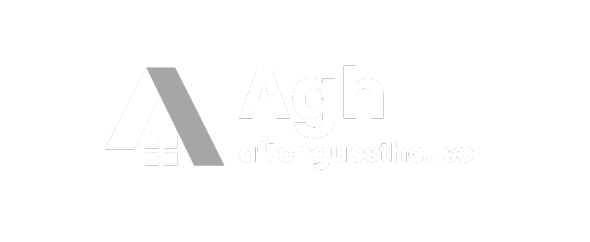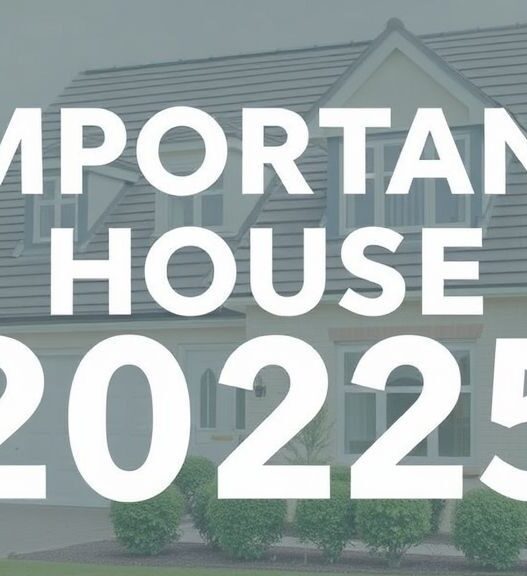Proven Guide: Toronto House Prices in 2025
Introduction
The housing market is always changing. Many people wonder about future house prices. Understanding these trends is very important. This guide will help you prepare for Toronto house prices in 2025. We will look at many factors. These factors influence the market significantly. Knowing what to expect can help you make smart choices. It can help whether you are buying or selling. It can also help if you are just curious. Toronto is a vibrant city. Its real estate market is unique. We will explore what 2025 might bring. We will focus on practical insights. This information will be easy to understand. It will help you navigate the complex market. Future house prices depend on many things. We will cover the most important ones. This guide aims to be your trusted resource. It will help you plan for the future.
Planning
Planning is essential for any major financial decision. Buying a home is one of the biggest. Understanding the market helps you prepare. It helps you set realistic expectations. Good planning reduces stress. It also increases your chances of success. You need to consider many aspects. These include your finances and market conditions. You also need to think about your personal goals. Toronto house prices are always a hot topic. Careful planning is key to navigating them. Do not rush into decisions. Take your time to gather information. This section will outline key considerations. These will help you plan effectively. They will prepare you for the Toronto market.
Key Considerations
- Economic Indicators: Watch the economy closely. Interest rates affect borrowing costs. Inflation can impact purchasing power. Job growth brings more buyers to Toronto. A strong economy often supports higher house prices. A weaker economy might see prices stabilize. Keep an eye on national and local reports. These reports offer valuable insights.
- Population Growth: Toronto continues to attract new residents. More people mean more demand for housing. This demand can push house prices up. Immigration plays a big role here. Inter-provincial migration also contributes. High population growth usually supports a strong market. It creates competition among buyers.
- Government Policies: New rules can change the market. Policies on foreign buyers matter. First-time homebuyer incentives are important. Zoning laws affect new construction. Property taxes also influence affordability. Stay updated on government announcements. These can directly impact house prices. They can create new opportunities or challenges.
- Supply and Demand: This is a fundamental principle. If supply is low and demand is high, prices rise. Toronto often faces a housing shortage. New construction struggles to keep up. This imbalance supports higher house prices. Look at new housing starts data. This data shows future supply levels.
- Market Sentiment: Buyer and seller confidence matters. If people feel optimistic, they buy more. If they are worried, they might wait. Media reports can influence sentiment. Talk to real estate professionals. They often have a good feel for the market. Positive sentiment can drive prices up. Negative sentiment can slow things down.
Cost Analysis
Understanding the costs involved is crucial. It goes beyond just the purchase price. There are many associated expenses. These can add up quickly. A thorough cost analysis helps you budget. It prevents unexpected financial surprises. Toronto house prices are already high. So, every extra cost matters. This section will break down typical expenses. It will help you see the full financial picture. Knowing these costs upfront is empowering. It allows for better financial planning. You can then make informed decisions. This analysis is vital for any buyer.
Price Comparison
Comparing prices helps you understand value. Different property types have different costs. Location within Toronto also plays a huge role. This table shows estimated average house prices. These are for various property types. They reflect current trends and projections. Remember, these are averages. Actual prices can vary widely. Use this as a general guide. It helps you see the scale of investment. It also highlights the differences. This comparison is key for budgeting. It helps you target the right property.
| Property Type | Average Price (2023) | Projected Average Price (2025) | Key Factors |
|---|---|---|---|
| Detached House | $1,500,000 | $1,650,000 – $1,800,000 | High demand, limited supply, land value. These homes offer more space. They are often preferred by families. Their house prices are typically the highest. |
| Semi-Detached House | $1,200,000 | $1,300,000 – $1,450,000 | Good balance of space and cost. Often found in established neighborhoods. These properties are popular. They offer a good alternative to detached homes. |
| Townhouse | $950,000 | $1,050,000 – $1,200,000 | More affordable than detached homes. Offers multi-level living. Often includes a small yard. These are popular for urban living. They provide good value. |
| Condominium Apartment | $750,000 | $800,000 – $950,000 | Most affordable entry point. High-rise living is common. Offers amenities and convenience. Popular with young professionals. These units are plentiful. |
These projections consider various factors. They include inflation and interest rates. Supply and demand dynamics are also factored in. Remember, these are estimates. The actual Toronto house prices in 2025 could differ. Always consult with a local real estate agent. They can provide the most current data. They understand specific neighborhood trends. This table gives you a starting point. It helps you visualize potential costs.
Step-by-Step Guide
Navigating the Toronto housing market can feel overwhelming. A clear plan makes it much easier. This step-by-step guide will help you. It breaks down the process into manageable parts. Each step is important for success. Follow these instructions carefully. They will prepare you for buying a home. They will help you understand the market. This guide focuses on practical actions. It helps you prepare for the realities of Toronto house prices.
DIY Instructions
Here are detailed steps to prepare for your home buying journey:
- Assess Your Finances: First, understand your budget. Calculate your income and expenses. Determine how much you can comfortably afford. Get pre-approved for a mortgage. This shows lenders your borrowing power. It also helps you set a realistic price range. Knowing your financial limits is crucial. It prevents looking at homes you cannot afford.
- Research the Market: Study current market conditions. Look at recent sales in your desired areas. Understand average house prices for different types. Read market reports and forecasts. Pay attention to interest rate predictions. Knowledge is power in real estate. This research helps you make informed decisions. It prepares you for market fluctuations.
- Define Your Needs and Wants: Make a list of must-haves. Include the number of bedrooms and bathrooms. Think about location and school districts. Also, list your preferred features. These might include a backyard or a garage. Prioritize your list carefully. This helps narrow down your search. It saves time during viewings.
- Save for a Down Payment: A larger down payment is beneficial. It reduces your mortgage amount. It can also lower your monthly payments. Aim for at least 20% to avoid mortgage insurance. Start saving early and consistently. Consider setting up an automatic transfer. Every dollar saved helps you reach your goal.
- Improve Your Credit Score: A good credit score is vital. It helps you qualify for better mortgage rates. Pay your bills on time always. Reduce your outstanding debts. Check your credit report regularly. Dispute any errors you find. A strong credit score saves you money. It makes you a more attractive borrower.
- Consult Professionals: Talk to a real estate agent. Find one who specializes in Toronto. They know the local market well. They can guide you through the process. Also, speak with a mortgage broker. They can find the best rates for you. Legal advice is also very important. Professionals offer invaluable expertise.
- Be Patient and Flexible: The market can be competitive. Finding the right home takes time. Be prepared for multiple offers. You might not get your first choice. Stay flexible with your criteria. Consider different neighborhoods. Patience is a virtue in real estate. It helps you avoid impulsive decisions.
- Understand Closing Costs: These are additional expenses. They are paid when the sale closes. They include legal fees and land transfer tax. Property appraisal fees are also common. These costs can add thousands of dollars. Factor them into your budget. Do not let them surprise you.
- Prepare for Maintenance: Owning a home involves ongoing costs. These include property taxes and utilities. There are also repair and maintenance expenses. Budget for these regular outlays. Set aside an emergency fund. This covers unexpected repairs. Being prepared avoids financial strain.
- Stay Informed on Toronto House Prices: The market is dynamic. Prices can change quickly. Keep monitoring market trends. Read news about real estate. This ongoing awareness is key. It helps you adapt your strategy. It ensures you make timely decisions.
Maintenance Tips
Owning a home is a significant investment. Protecting that investment is crucial. This involves ongoing care and attention. Proper maintenance preserves your home’s value. It also prevents costly repairs later on. These tips focus on long-term care. They help you maintain your property. They also help you maintain your financial health. This is especially important with high Toronto house prices. Regular maintenance ensures your home remains a valuable asset. It helps you enjoy your living space for years.
Long-Term Care
- Regular Inspections: Schedule annual home inspections. A professional can spot small issues. They can identify problems before they grow. This includes checking the roof and foundation. It also covers plumbing and electrical systems. Early detection saves money. It prevents major structural damage.
- Preventative Maintenance: Perform routine tasks. Clean gutters regularly. Check your HVAC filters monthly. Test smoke detectors and carbon monoxide alarms. Seal cracks in your driveway or foundation. These small actions prevent big problems. They extend the life of your home’s components.
- Budget for Repairs: Set aside money for future repairs. Homes always need some upkeep. Appliances break down eventually. Roofs need replacing over time. Having a dedicated fund is smart. It avoids financial stress when issues arise. This is a key part of managing your investment.
- Stay Updated on Market Value: Keep an eye on local house prices. Understand how your home’s value changes. This helps you make informed decisions. It is useful if you plan to refinance. It also helps if you consider selling. Knowing your home’s worth is empowering. It helps you track your investment.
- Invest in Upgrades Wisely: Some upgrades increase value. Kitchen and bathroom renovations are popular. Energy-efficient windows can save money. Choose upgrades that appeal to buyers. Avoid over-improving for your neighborhood. Research what adds value in Toronto. Smart upgrades protect your investment.
Conclusion
Navigating the Toronto housing market requires careful planning. Understanding future house prices is essential. We have explored key factors influencing the market. Economic indicators, population growth, and government policies all play a role. Supply and demand dynamics are also critical. Market sentiment greatly impacts buyer confidence. Our cost analysis provided insights into potential expenses. The price comparison table offered a clear overview. It showed projected average house prices for 2025. The step-by-step guide offered practical advice. It detailed how to prepare for homeownership. From assessing finances to consulting professionals, each step is vital. Finally, maintenance tips emphasized long-term care. Regular inspections and preventative actions protect your investment. Budgeting for repairs is also crucial. Staying informed about market value helps you make smart choices. Toronto house prices will continue to evolve. Being prepared is your best strategy. This guide aims to empower you. It provides the knowledge needed for success. Make informed decisions for your future.



















